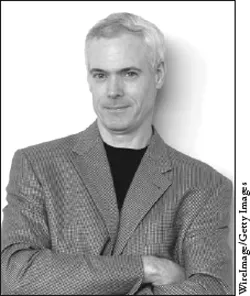CHAPTER 1
Thesis
What Is Humility and Why Does It Matter?
I SPEAK AS AN OUTSIDER ON THE SUBJECT OF leadership. I have become aware in writing this book just how large an industry the leadership track is. The books and journals on the theme would take a lifetime to review. I have done what I can to learn from leadership academics like Jim Collins at Stanford, John P. Kotter and Joseph L. Badaracco at Harvard and Simon Walker at Oxford. I’ve read some of the practical reflections of leaders like Charles Farkas of Bain & Company, Thomas Teal of the Boston Consulting Group and the forever-famous guru of leadership, Stephen R. Covey. But I remain a leadership hack with no claim to understand the intricacies of corporate management, let alone contribute to the sophisticated conversation going on in the field.
What I hope to bring to this discussion is historical perspective. That’s my training: history—in particular, ancient history. I realize that might not sound particularly relevant to the executive who wants up-to-date, ahead-of-the-pack information on creating organizational momentum, managing relationships, setting goals, communicating change and so on, but my defense in this case is the one I offer whenever someone asks me the point of studying history. Learning history (and especially learning from it) is the ultimate exercise in democracy. By it you give a voice not just to the “blip” we call the twenty-first-century West but to the whole human family, ancient and modern. You allow the dead to cast a vote in the discussions and decisions of the present.
The value of such learning from history is hard to overstate. Our contemporary society may have eclipsed the past in terms of science, medicine and technology but in other areas I reckon we are only “about average” compared to the ancients. In some things we are “well below par". You only have to read Siddhartha Gautama, the Buddha, on the art of concentration (fifth century BC), 1 or Aristotle on communication theory (fourth century),2 or Seneca on ethics (first century AD),3 or Plutarch on the complexities of friendship (second century),4 or St Augustine on human nature (fifth century),5 or Heloise on romantic love (twelfth century)6 or William of Ockham on natural human rights (fourteenth century)7 to discover two things: first, there are few truly new ideas in the world; second, real wisdom for life and leadership is found not just in the latest issue of the Harvard Business Review (as helpful as it is) but in opening yourself up to centuries of human thinking on these and other topics. The reader of history is the ultimate pollster, canvassing the opinion of the entire human family.
With all of that said, please don’t imagine that Humilitas is some ethereal call to plumb the depths of history and philosophy. Despite the pretentious Latin-root title, this is an essentially practical book. I will be drawing on ideas and authors long gone, but only in passing and mainly to flag that my best thoughts are secondhand. Apart from a section on the origins of the virtue of humility in the Western ethical tradition, which readers should feel free to skip over, most of what follows is a straightforward attempt to describe the importance of humility for contemporary life, love and leadership and to outline its very real benefits.
The Thesis
My thesis is simple: The most influential and inspiring people are often marked by humility. True greatness, in other words, frequently goes hand in hand with a virtue that, on the face of it, might be thought to curb achievement and mute influence. In fact, I believe it does the opposite.
I will define humility in a moment, but it’s worth noting the way it pops up in some unexpected places. Many readers will know the work of Jim Collins, the Stanford University business analyst and author of the best-selling Good to Great. He conducted a five-year study exploring what turns good companies into great ones. He defined a “great” company as one that experienced a turn-around in which it financially outperformed the market trend by at least three times for a fifteen-year period. One classic example is Gillette, best known for shaving products. Between 1980 and 1995 the company enjoyed cumulative stock returns 7.39 times greater than the general stock market. Only eleven companies in the US made Collins’s “great” category. Most notable were those that didn’t make the cut, including Coca-Cola, Johnson & Johnson, Wal-Mart and General Electric, companies that only outperformed the market by 2.5 times.
Jim Collins, 2005
Many observers were surprised to learn that one of the key factors in all eleven good-to-great companies during the growth phase was what Collins described as Level 5 Leadership—that is, leadership marked by two characteristics: steely determination and an attitude of humility. Collins records the puzzlement of his research team at the consistency of this finding:
We were surprised, shocked really, to discover the type of leadership required for turning a good company into a great one. Compared to high-profile leaders with big personalities who make headlines and become celebrities, the good-to-great leaders seem to have come from Mars. Self-effacing, quiet, reserved even shy—these leaders are a paradoxical blend of personal humility and professional will. They are more like Lincoln and Socrates than Patton or Caesar.8
Collins’s 2009 book How the Mighty Fall bears out the flipside—when successful companies become arrogant, it often spells their downfall.9
Then there is General Stanley McChrystal, number two in Time magazine’s “Person of the Year” for 2009. Before his removal for unfavourable remarks about the Obama administration, he was commander of all forces in Afghanistan and one of the most celebrated leaders in US military history. A Harvard graduate, he runs over ten kilometers daily, eats one meal a day and sleeps four hours a night. We might say he is a high achiever. During a surprisingly frank press conference held in London shortly after his appointment as commander, McChrystal offered an intriguing, one-word summary of his approach to the insurgency in Afghanistan:
I have found in my experience that the best answers and approaches may be counter-intuitive. The opposite of what it seems you ought to do is what ought to be done. So, when I’m asked the question, What approach should we take in Afghanistan? I say, humility.
We are left wondering exactly what humble counter-insurgency looks like—though I suppose he meant understanding and serving the Afghan people will go a long way toward undermining the influence of the Taliban. But I was truly fascinated to watch his remarks and to observe the way he paused afterward for emphasis. It was as if an oracle had been spoken. The unwinnable war can be won through humility. Humility appears in some unlikely places.
General McChrystal is right to describe this idea as “counterintuitive". Readers might already be asking, How can influence be exerted and enemies be overcome through humility? Surely, what is needed is forcefulness! It all depends how we define the word.
General Stanley McChrystal delivers a speech in London, October 1, 2009.
What Is Humility?
Humility does not mean humiliation, even though both words are offspring of a single Latin parent (humilitas). Nor does it mean being a doormat for others, having low self-esteem or curbing your strengths and achievements. Collins’s work reminds us it is possible to be humble, iron-willed and successful, and they frequently go together. Muhammad Ali was wrong when he once quipped, “At home I’m a nice guy: but I don’t want the world to know. Humble people, I’ve found, don’t get very far.”10
Having strong opinions is no hindrance to humility either. One of the failings of contemporary Western culture is to confuse conviction with arrogance. I will explore this further in chapter 10, where I suggest that humility, rightly understood, is a potential antidote to the hateful political and religious rhetoric we often hear: Left versus Right, Christian versus Muslim and so on. I want to argue that the solution to ideological discord is not “tolerance” in the post-modern form we frequently find it, the bland affirmation of all viewpoints as equally true and valid but an ability to profoundly disagree with others and deeply honour them at the same time. It should be entirely possible for Christians to reject Islamic doctrine as invalid and untrue—to maintain theological conviction, in other words—without diminishing their capacity to honour Muslims as fellow members of the human family. Likewise, the political Right should be able to disagree with the Left, and vice versa, without descending into name-calling, backbiting and worse.
So what is humility if it isn’t surrendering our convictions, strengths and achievements? The etymology of the word is helpful but requires some explanation to avoid misunderstanding. Several ancient cultures have contributed to Western culture generally. The influential British political philosopher John Macmurray put it like this: “Three old civilizations have been mixed together to form the culture of which we are the heirs—the Hebrew, the Greek and the Roman, a religious, an artistic and an organizing, administrative or scientific civilization. These three streams of old experience have never really fused.”11 This is no less true of the story of humility.
I will say more about this in chapters 5 and 6. For now I just want to point out that the peculiar Western meaning of “humility” derives from the usage of the Hebrew-speaking Jews, Latin-speaking Romans and the Greeks, in particular Greek-speaking Christians of the first century. In all three languages the word used to describe humility means “low", as in low to the ground: the Hebrew anawa, the Greek tapeinos, and the already-familiar Latin humilitas. Used negatively, these terms mean to be put low, that is, “to be humiliated". Positively, they mean to lower yourself or “to be humble".
The two uses are radically different. One is the awful experience of being conquered or shamed, and this was the dominant usage of the term in ancient times. The other is the noble choice to redirect your power in service of others. This became the dominant usage only late in the Roman period (second to fifth centuries AD) and for reasons I will explain in chapter 6.
We are now in a position to define the term as I will use it throughout the book. Humility is the noble choice to forgo your status, deploy your resources or use your influence for the good of others before yourself. More simply, you could say the humble person is marked by a willingness to hold power in service of others.
There are three key thoughts in this definition. First, humility presupposes your dignity. The one being humble acts from a height, so to speak, as the “lowering” etymology makes clear. True humility assumes the dignity or strength of the one possessing the virtue, which is why it should not be confused with having low self-esteem or being a doormat for others. In fact, I would go so far as to say that it is impossible to be humble in the real sense without a healthy sense of your own worth and abilities. Mark Strom, a fellow historian and proper leadership analyst, puts it well:
Wise leaders hold nobility with humility. Overbearing ego and debilitating self-abasement are generally avoided in all wisdom traditions. Many traditions call for balance. I would suggest a further step, also found in the ancient wisdom writings: that you look beyond balance, that you embrace the paradox of strength in weakness to find your true weight as a leader.12
Second, humility is willing. It is a choice. Otherwise, it is humiliation.
Finally, humility is social. It is not a private act of self-deprecation—banishing proud thoughts, refusing to talk about your achievements and so on. I would call this simple “modesty". But ...


